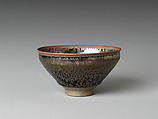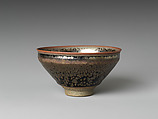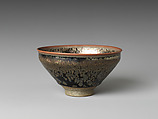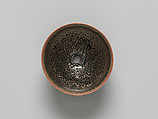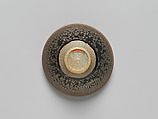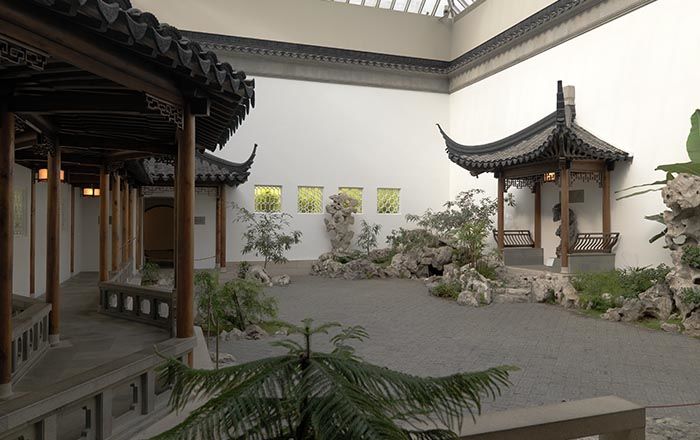Tea Bowl with “Oil-Spot” Decoration
Kamada Kōji Japanese
Not on view
Tenmoku, a type of iron-glazed stoneware, originated in China during the Song dynasty (960–1279). It takes its name after the mountain range where it was first produced. In the thirteenth century, tenmoku bowls were introduced to Japan by Buddhist monks returning from their studies. Highly regarded by the Ashikaga shoguns, tenmoku tea bowls hold a revered position in the early history of tea culture (chanoyu). Based in Kyoto, Kamada Kōji is one of a very few contemporary Japanese ceramic artists who has chosen to research and produce tenmoku.
Due to rights restrictions, this image cannot be enlarged, viewed at full screen, or downloaded.
This artwork is meant to be viewed from right to left. Scroll left to view more.
